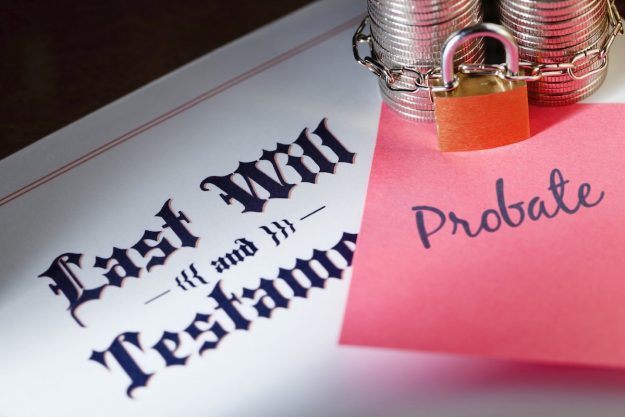Rod Genders is a senior Australian lawyer specialising in Wills and Estate Planning, Probate and Estate Administration, Trusts and Guardianship and Inheritance Claims and Contested Estates in South Australia. His boutique specialist law firm, which was founded on 1848, is one of the oldest and most respected in Australia. Rod is an international author and speaker. Rod is the 3rd generation of Genders in the law and has been practising specialised law since the mid 80’s. For over 10 years he served on the Council of the Law Society of South Australia and is a senior member of its Succession Law Committee. For 8 years Rod was a founding committee member of the South Australian branch of the London-based Society of Trusts and Estate Practitioners (STEP) and was the founding Chair of the international STEP Digital Assets Special Interest Group. For over 25 years Rod has chaired a private committee enquiring into the affairs of protected persons. He is a member of the Law Council of Australia, a member of the Notaries Society of South Australia and an associate member of the American Bar Association.
If you die before all your super is withdrawn, your super fund typically pays a death benefit to your dependents, other nominated beneficiaries or your estate.
Death benefits include the balance of your super account plus an insurance benefit if you have been paying life insurance premiums from within your fund.
You need to nominate who you want to receive your death benefits when you die.
The life of a business owner involves long work hours, travel and utilising all resources (time, energy, money etc) to grow their business.
It is no wonder that the combination of these factors can cause a strain on relationships and in some cases, results in separation.
Separation is never easy, but it can be even more difficult for business owners.
This is because business owners have the added uncertainty of having their jobs (and often livelihoods) tied up in a business that is considered an asset of the relationship.
You may already know that marriage automatically revokes all prior Wills (with a few special exceptions) in every state and territory in Australia.
But did you know that divorce does not necessarily have the same effect? Depending on where you live, your ex-spouse might still be entitled to inherit under your Will.
Further, your powers-of-attorney and advance directives are not affected by divorce at all.
How to handle the common issue of debts that have not been resolved before a person dies.
An Executor is the person who is appointed under a Will, to administer the estate of a person who has died (the Deceased).
In the Probate process, the Court confirms that a specific piece of paper is the Last Will of the Deceased and appoints the person named in the Will to be the Executor.
Recent research from the UK confirms what many of us have known for some time: The estates administration process in Australia and the UK is paper-heavy, slow and inefficient and is causing stress, frustration, and even mental health issues for those involved.
In a recent annual Bereavement Index 2021, looking at the legal and financial responsibilities that come with administering deceased estates, UK research has discovered that 88 per cent of legal professionals think the probate process is too slow and inefficient.
In 2021 Australia, experts are reporting that more than 60 per cent of first home buyers are relying on their parents to help buy their properties, with the average contribution rising to a record $93,000 – an increase of about 26 per cent in the past 12 months.
The Bank of Mum and Dad (aka BOMAD – a colloquial expression to describe parental lending) is estimated to have outstanding loans of about $35 billion, which makes it the nation’s ninth-largest mortgage lender – bigger than AMP, Citigroup and HSBC Australia, according to analysis by an independent market analyst.
Vaccine Passports are coming
In 2021 we learned a new phrase: “vaccine passport”.
A vaccine passport does not confirm its carrier’s citizenship or identity, though it may affect their ability to travel internationally, to work or even enter certain domestic and entertainment venues.
The purpose of a vaccine passport is to allow governments and private businesses to confirm the degree to which a person may be at risk of contracting COVID-19 or spreading it to others around them.
If you overlook the need to get your affairs in order in an organised manner, it creates quite a mess for your family when you die or if you become incapacitated.
So here’s a few tips to help your family say “thank you”, rather than leave them a mess:
Keep your stuff in order
This is the number one estate-planning rule – one simple but crucial bit of wisdom that often gets overlooked.
You may have thought the hardest decisions associated with formalising your relationship related to organising the party and keeping uncle Fred away from cousin Merle, but here are a few other considerations…
Change of Name
Traditionally, when a woman married, she took the last name of her husband. However this is not as common as it once was, and there is no legal compulsion to do so.
You’re not alone. Every Australian family will be affected by dementia. As we get older, we need to have in place some important legal documents to protect ourselves, our family and our assets. If you wait too long, it could be too late.
In 2021 dementia affects almost 50 million people worldwide, which is predicted to increase to 131.5 million people by 2050.
Every three seconds another person somewhere in the world develops dementia.





















